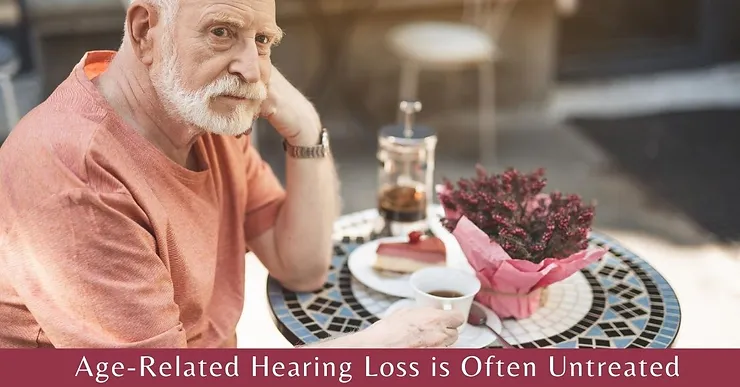
About 48 million Americans today have hearing loss. Most of these are cases of age-related hearing loss, also known as presbycusis or AHL. While AHL can start as early as age 45, about 50% of people experience it by age 70, and 100% of centenarians have it. Indeed, if we live long enough, we all experience hearing loss. However, only about 1 out of 5 people treat their hearing loss with hearing aids. On average, it takes a person 7 years from the time they recognize that they have hearing loss to when they get hearing aids.
Hearing Loss is Not Harmless
In recent history, hearing loss has been understood as a relatively benign part of the aging process. While some may pursue hearing aids, others might simply let nature run its course and work around their hearing loss as best they can.
Unfortunately, we’ve come to understand in recent decades that, like many other formerly separate categories of investigation into human medicine, our ears are part of a larger system and cannot degrade without affecting the rest of the body.
Presbycusis Progression
When we first start to experience hearing loss, we might notice ourselves having trouble making out conversations at a busy restaurant. After that, we might become aware that other people are hearing sounds that we are missing. We start to notice ourselves getting tired when we’re around other people: straining to listen is hard work!
Now we start weighing the benefits of our social engagements more seriously. Do we really need to go to our coworker’s birthday party? And that weekly meet-up with our friends at the coffee shop has been less fun and more exhausting; maybe we’ll skip it this time.
At the same time as we start limiting our conversation time, our brain is getting used to receiving less speech information. Not only are we conversing less, but when we do, our brain is receiving less information from our ears than it used to. Where once the simple task of understanding sentences was accomplished by our auditory cortex, now we have to involve the frontal cortex to put together complete sentences from context clues, lip-reading and guesswork. This is why we’re getting so tired just from meeting up with a friend.
But our auditory cortex is not just doing less work—it is shrinking. As time passes, we start to have trouble comprehending speech even when we can hear it clearly. And because the auditory cortex is also tied in with memory, we might notice things slipping our minds. We might have more trouble holding a train of thought.
As we find ourselves having more and more trouble understanding speech, remembering where we left our keys, and why we started telling one story or another, social engagement becomes less and less attractive. We pull away from friend circles and have increasingly limited engagement even with our spouses. Eventually, we find ourselves in pretty lonely circumstances.
This is the story of the outcome that hearing loss is known to engender. Hearing loss has been shown in study after study to lead to “brain atrophy,” and to significantly increase the risks of cognitive decline and dementia, loneliness, depression and social isolation. The good news is that this doesn’t need to be your outcome, and, wherever you are along this storyline, it can be reversed.
Getting On Track to Good Hearing Health
Many hearing healthcare providers offer training courses to those who are new to hearing aids. These courses help people learn to understand speech again. They may involve some group meetings at the clinic and some courses that can be completed from home with a computer. Once your ears can hear again, you can actually begin to regrow your auditory cortex. The effects carry over into memory and cognitive issues, as well. Yes, researchers have actually seen study participants improve their scores on cognitive tests after a period of wearing hearing aids.
However long your hearing loss has gone untreated, take action today and start the course back toward good hearing health. After one year of wearing them, 91% of people report being satisfied with their hearing aids. A variety of models is available for a wide range of lifestyles—an audiologist can help you determine the right set of hearing aids for you. Make an appointment for a hearing test today!
